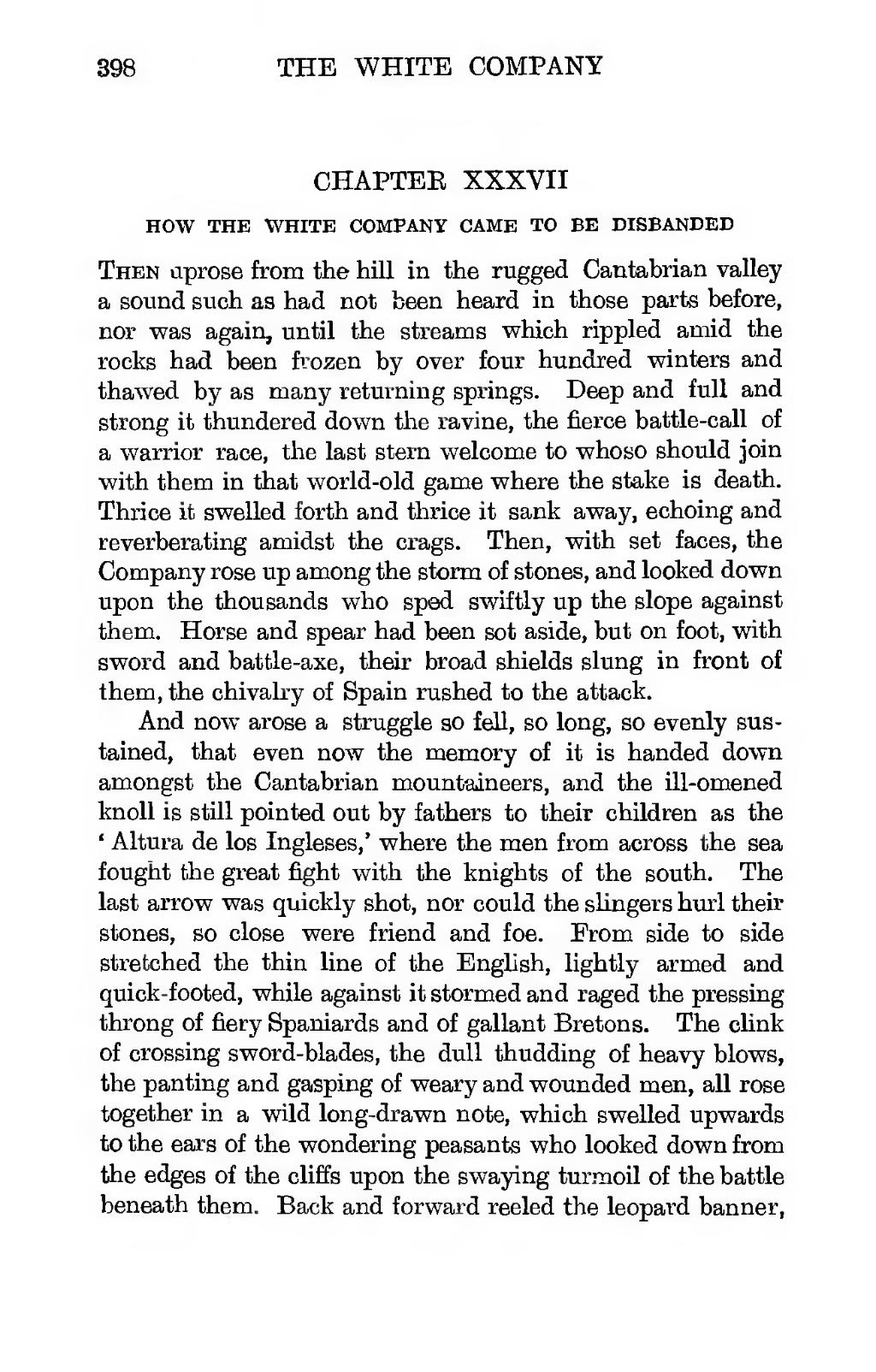CHAPTER XXXVII
HOW THE WHITE COMPANY CAME TO BE DISBANDED
Then uprose from the hill in the rugged Cantabrian valley a sound such as had not been heard in those parts before, nor was again, until the streams which rippled amid the rocks had been frozen by over four hundred winters and thawed by as many returning springs. Deep and full and strong it thundered down the ravine, the fierce battle-call of a warrior race, the last stern welcome to whoso should join with them in that world-old game where the stake is death. Thrice it swelled forth and thrice it sank away, echoing and reverberating amidst the crags. Then, with set faces, the Company rose up among the storm of stones, and looked down upon the thousands who sped swiftly up the slope against them. Horse and spear had been set aside, but on foot, with sword and battle-axe, their broad shields slung in front of them, the chivalry of Spain rushed to the attack.
And now arose a struggle so fell, so long, so evenly sustained, that even now the memory of it is handed down amongst the Cantabrian mountaineers, and the ill-omened knoll is still pointed out by fathers to their children as the 'Altura de los Ingleses,' where the men from across the sea fought the great fight with the knights of the south. The last arrow was quickly shot, nor could the slingers hurl their stones, so close were friend and foe. From side to side stretched the thin line of the English, lightly armed and quick-footed, while against it stormed and raged the pressing throng of fiery Spaniards and of gallant Bretons. The clink of crossing sword-blades, the dull thudding of heavy blows, the panting and gasping of weary and wounded men, all rose together in a wild long-drawn note, which swelled upwards to the ears of the wondering peasants who looked down from the edges of the cliffs upon the swaying turmoil of the battle beneath them. Back and forward reeled the leopard banner,
